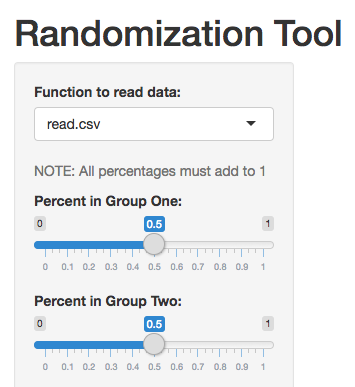Guest post by Jeff Mosenkis of Innovations for Poverty Action. South Africans, trying to come to grips with the astonishing scale of the crisis, have adopted a once-obscure political science term, “state capture,” as a staple of even casual conversation … Yet previous examples of state capture have almost always involved a broad cast of protagonists: an entire industry, for example, or wealthy businessmen as a group. In South Africa, it may have been pulled off by a single family. Data Colada offers some advice on how to preregister a study effectively. Larry Summers offered some thoughts on the future of development at the Center for Global Development video here. J-PAL is offering scholarships to students from sub-Saharan Africa for their new MIT masters in Data, Economics, and
Topics:
Jeff Mosenkis (IPA) considers the following as important: development, Economics, links, miscellany, news, political science, Poverty, RCTs, Research, scale-up, South Africa, statistics, teaching
This could be interesting, too:
Lars Pålsson Syll writes Schuldenbremse bye bye
Lars Pålsson Syll writes What’s wrong with economics — a primer
Lars Pålsson Syll writes Krigskeynesianismens återkomst
Lars Pålsson Syll writes Finding Eigenvalues and Eigenvectors (student stuff)
Guest post by Jeff Mosenkis of Innovations for Poverty Action.

South Africans, trying to come to grips with the astonishing scale of the crisis, have adopted a once-obscure political science term, “state capture,” as a staple of even casual conversation … Yet previous examples of state capture have almost always involved a broad cast of protagonists: an entire industry, for example, or wealthy businessmen as a group. In South Africa, it may have been pulled off by a single family.
- Data Colada offers some advice on how to preregister a study effectively.
- Larry Summers offered some thoughts on the future of development at the Center for Global Development video here.
- J-PAL is offering scholarships to students from sub-Saharan Africa for their new MIT masters in Data, Economics, and Development Policy. A prerequisite is completing their online 5-class MicroMasters degree.
- Also in the world of online resources, Daniel Björkegren’s course materials for his Brown University “Big Data” approaches to human behavior are here.
- Jess Hoel asked for and got a lot of responses of examples of papers for teaching how one program does or doesn’t generalize to another context.
- Rachel Glennerster offers four different models of how evidence-based interventions have been expanded and saved lives, and 3 tips for funders on how to support it (my paraphrasing here:)
- Stay flexible, you never know where innovation will come from.
- Evidence is a global public good, support cracking the theory behind why something works, so the same underlying principle can be put to use elsewhere.
- There’s a lot of evidence out there, some of it subtle. Support having the people who know it work closely with government to help them take advantage of it.
- I’d add a sub-bullet, which IPA & J-PAL are trying to do more and more: Not everything works off the shelf (see generalizability thread above). Support those experts working with government to incorporate testing and adjusting into their policy-making process.
- For organizations who want to try randomization, Berkeley’s Josh Kalla created a simple randomizer tool for spreadsheets. Just upload your spreadsheet and adjust the proportions you want in each of up to 4 groups. (GitHub here.)
And if you were wondering if behavioral or traditional economists differ when it comes to free-riding, according to the latest Freakonomics ep both seem cool with it as long as you call it something else:
LEVITT: Yeah, my friend and colleague Richard Thaler won the Nobel Prize in economics, which has been another joyous occasion on the University of Chicago campus and especially nice for me because Thaler and I have been close friends for a long time. We play golf together quite a bit, and even had some little spillover for me. Golf Digest — which I’ve always dreamed of, somehow being written up in Golf Digest — they decided they’d write up Thaler because he won the Nobel Prize and because he’s an avid golfer. I was able to tag along and be the third wheel. Maybe I’ll get a brief mention or some kind of a scrap in Golf Digest so I can cross that off my bucket list.
DUBNER: So the moral of the story is you’ve wasted thousands of hours on instructional golf? You just need to get your Nobel and then you’ll get your spread in Golf Digest?
LEVITT: Exactly.
